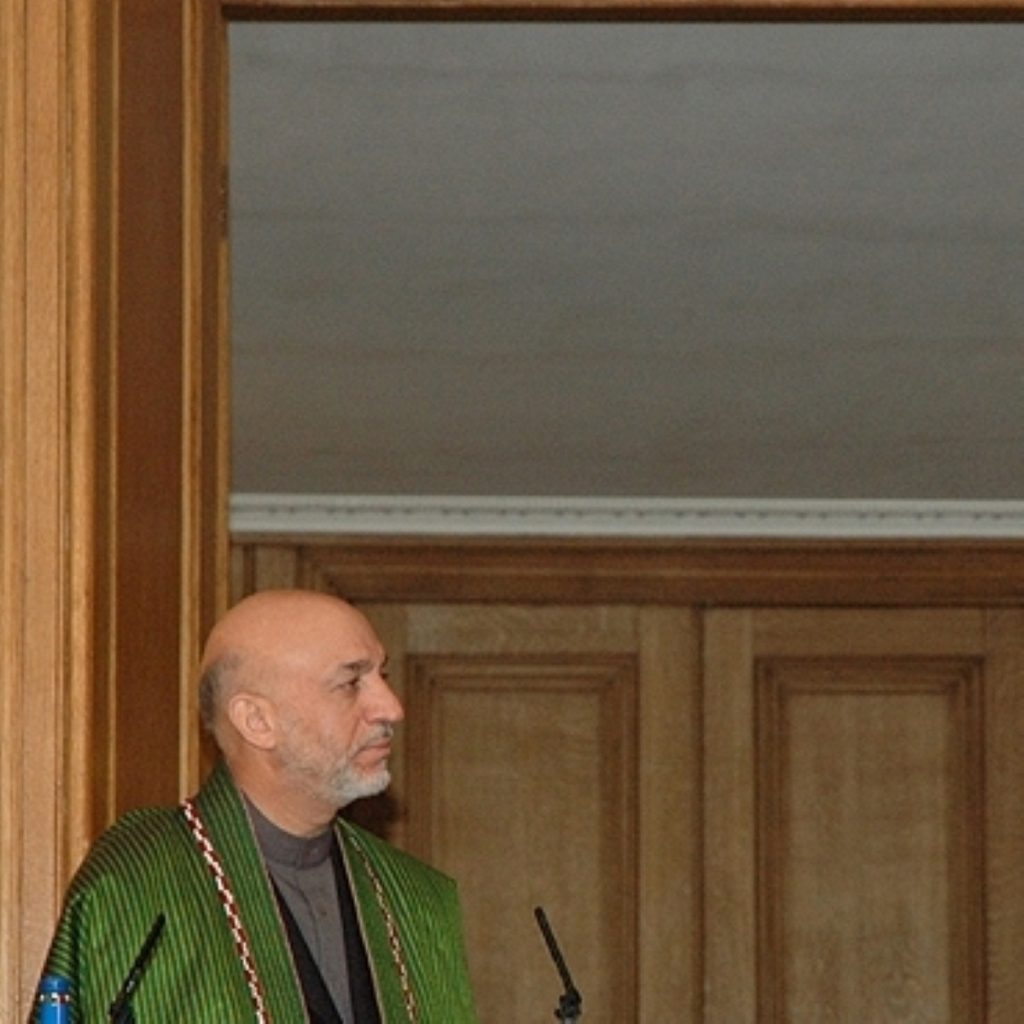Analysis: The elaborate Afghanistan conference ritual
Analysts will be peering inside the swirl of rhetoric and symbolism surrounding London’s Afghanistan conference to grasp its real significance. They’re missing the point.
The speeches, the briefings, the to-ing and fro-ing of this summit are an essential part of statecraft – especially when the state in question is still in the process of being crafted.
It’s just as well. It turns out once inside the swirl we find there’s not much of real substance to work on.


There are two great imponderables the international community is confronted with as it scratches its head on Afghanistan.
First, so much of what this conference is about – kickstarting the lengthy ‘transition’ stage – depends on as-yet unanswered questions.
Take the proposals for reintegrating the non-ideological members of the Taliban. In one government briefing, it was clearly understood the main ‘alternative livelihood’ on the table lay in the security sector. A local defence force here, an indigenous security grouping there.
In another it was confidently stated that agricultural alternatives would be prominent. Security roles were downplayed. This direct contradiction was a sad symptom of the wider problems at the heart of the conference. No one really knows how this, or many other Afghan problems, are really going to work out.
The second imponderable is the Afghan government itself. It is the most important partner for the international community, a fundamental piece of the jigsaw. It is also capable of causing its global partners huge headaches. Look no further than last year’s fraud-ridden elections to see why.
Across the board we find the need to involve Hamid Karzai’s administration in the solutions to Afghanistan creates uncertainty.
At every turn the international community encounters difficulties. There are some figures who make life easier rather than harder; diplomats point to the current finance minister as an obvious example. Karzai, on the other hand, is even uncomfortable with the word ‘reform’.
It implies something is wrong that needs changing, after all. This drives Foreign Office officials up the wall. But it’s just a hint at the complexities of Afghan politics which the international community must deal with.
Nowhere are these complications, and the desperate need for reform, more fundamental than in the fight against corruption.
Large parts of the international community are seeking progress here. A big part of the London conference’s goals focus on pressuring Karzai’s administration on corruption as far as possible. There is an economic incentive, here, for the number of donors is directly linked to this issue. Yet problems remain.
The latest reworking of counter-corruption proposals looks like disappointing those used to western standards of democracy. The Foreign Office and its equivalent ministries want a standing body dealing with corruption claims. The Afghans prefer a temporary body, to convene as and when it is deemed necessary. Clearly, there is still a lot of pushing to be done.
But this is only the beginning. Part of the reconciliation effort triggered by today’s conference will be the announcement of a grand jirga. But will this be multi-ethnic? Will it be just about winning over conservative Pashtuns only, or might the target be the Taliban leadership? The latter remains a possibility, although it is considered unlikely as it would require the usual renunciation-heavy preconditions. Previous proposals for grand jirgas have fizzled out. Karzai must handle this carefully.
Then comes the management of the reconciliation fund, which will be used to draw disillusioned Taliban fighters away from the insurgency. Quite how livelihoods will be developed for non-ideological fighters remains to be seen. The Afghan government has demanded it take control of this, so it’s for them to flesh out – not the international players.
The problem with all this is Karzai’s inherent weakness.
He has “tiny amounts of money” to play with and lacks internal power projection. Beyond the Afghan national security forces there are few levers available to pull. Ambitions are slim: even providing basic services at a local and provincial level would be a huge step forwards.
Yet simply looking at the aims of this conference through the lens of pragmatic progress misses the big picture. This is just as well, given the miserable plethora of unanswered questions outlined above.
The international community need the Afghan government because, without its support, it loses its legitimacy. The Afghan government knows that – and it understands its domestic political weaknesses and its reliance for security on coalition forces. As Paul Cornish, the head of Chatham House’s international security programme, puts it: “Karzai’s not an idiot. He knows which way the cake’s being cut.”
This is not a symbiotic relationship, but a “transient” one, Prof Cornish says. “Although he is supported heavily, that support has no meaning without his leadership. It’s what this is all about. It’s pushing them [the Afghan government] into more of a leadership position.”
It explains the foot-dragging against even the word ‘reform’; the demands for control; and the willingness of the contributing international players to put up with all this. He has to talk this kind of language because he is the president of a sovereign state. All the uncertainties emerging from today’s conference – and there are many – are worth putting up with to this end.
Prof Cornish adds: “The whole logic behind this is transition. If you take away that idea it becomes either very nasty or very absurd.”

